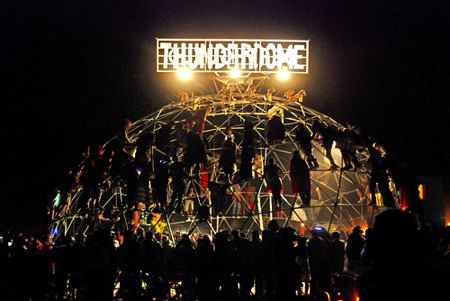Competition for jersey numbers!
This is interesting. Found it over on Maize 'n Brew.
"There was a battle for jersey No. 9, and Grant Perry lost his number through competition to Donovan Peoples-Jones. Perry is now No. 88."
I love it! If you want it you have to earn it. I wonder how many other battles went on?
August 30th, 2017 at 11:24 AM ^
Sign me up for DPJ already being ahead of a pretty-darn-good Grant Perry.
August 30th, 2017 at 2:39 PM ^
August 30th, 2017 at 11:52 AM ^
But to each his own, I suppose.
August 30th, 2017 at 12:27 PM ^
NTTAWWT
August 30th, 2017 at 2:12 PM ^
August 30th, 2017 at 11:57 AM ^
Does this mean the team would only be half the size? They'd have plenty of scholly's left over to award to walk-ons, then...
August 30th, 2017 at 11:32 AM ^
Perry should lose the #9 for getting in trouble.
August 30th, 2017 at 11:38 AM ^
As long as he doesn't pick 69 to replace it. That would seem...inappropriate...
August 30th, 2017 at 9:52 PM ^
"Peryy, , 69, in the slot"
August 30th, 2017 at 11:43 AM ^
...vague recollection of a coupla' threads on that.
August 30th, 2017 at 11:56 AM ^
August 30th, 2017 at 2:08 PM ^
who you calling old?????
August 30th, 2017 at 11:56 AM ^
Can't find the link.... but almost positive Webb mentioned this was in fact the reason DPJ took #9
August 30th, 2017 at 2:13 PM ^
And what number should he get?
Your comment is asinine. He should lose a number because he got in trouble? I'm trying to wrap my mind around that one.
If it was Tillman's number and this was Arizona St.? I'd understand...but that's not the case here.
August 30th, 2017 at 2:34 PM ^
I'm sorry you don't understand.
August 30th, 2017 at 10:18 PM ^
Well explain it then.
Because right now it seems like you think he should lose a meaningless number because of what he did.
The floor is yours...
August 30th, 2017 at 11:52 AM ^
Remember back in 2009, when dual-threat QB Shavodrick Beaver was a commit for a time, before ending up at Tulsa? He definitely, absolutely should have been given Pi as his number. "Starting QB, number 3.14159, Shavodrick Beaver!"
August 30th, 2017 at 12:41 PM ^
A Beaver wearing Pi on his jersey...brilliant! Just hope he didn't muff an exchange from the snapper.
August 30th, 2017 at 1:13 PM ^
Well, if you remember all the way back to 2009, he would have never muffed an exchange to the RB. He would have been handing off to Cox. Mike Cox...
August 30th, 2017 at 12:25 PM ^
There's no need to get irrational.
August 30th, 2017 at 12:38 PM ^
I'm going to be that guy, but at least I'm not going to say, "not to be that guy, but..."
Technically infinity is not a number.
August 30th, 2017 at 12:42 PM ^
It comes down to the definition of "number," as well as the definition of "infinity." Personally I don't think it's worth having an opinion on this subject; there are more precise words than "number" and "infinity" in mathematics. Historically the word "number" has come to mean an increasingly general list of things:
- a positive integer
- an integer
- a rational number
- a constructible number (say, to the ancient Greeks)
- a real number
- a complex number
- a cardinal number
- an ordinal number
- a surreal number...
The word "infinity" has also come to mean an increasingly general list of things: it might refer to
- a countably infinite set
- an uncountably infinite set
- the point at infinity in projective geometry
- one of the two new points in the two-point compactification of the real numbers
- the new point in the one-point compactification of the complex numbers, also known as the Riemann sphere
- an infinite cardinal number
- an infinite ordinal number...
Some of these meanings are compatible, as the above list demonstrates. But again, there are more precise words than "number" and "infinity" in mathematics, and if you want to get anywhere you should learn what those words are instead.
Here are some of those more precise words.
- A set is a formalization of the intuitive notion of a bag of objects, and we can talk about finite or infinite sets. For example, is a finite set, whereas the set of natural numbers is an infinite set. One can do arithmetic with sets in a way that leads to the arithmetic of the natural numbers: for example, taking the disjoint union corresponds to addition, and taking the Cartesian product corresponds to multiplication. These ideas lead to the arithmetic of the cardinal numbers, and similar ideas lead to the arithmetic of the ordinal numbers.
- A ring is a formalization of the intuitive notion of a set of things you can add and multiply, so in some sense one can regard elements of rings as "generalized numbers" (but note that not every generalization I listed above can be interpreted in this way). When certain people say that "infinity is not a number," what they mean is that you can't adjoin an element called to the ring of real numbers such that addition and multiplication do what you want them to do, the basic problem being that can't be consistently defined to satisfy the other rules of arithmetic if you also want it to be true that for any finite .
- A field is a commutative ring in which it's also possible to divide by nonzero elements. Some people would like to say that , but by mathematical convention the element never has a multiplicative inverse in a field, the basic problem being that can't be consistently defined to satisfy the other rules of arithmetic. However, one can make sense of the expression in projective geometry; it describes the point at infinity on the projective line.
- A topological space is an abstract setting for ideas like nearness and taking limits. Sometimes we don't want to view as a ring, but as a space (the real number line), and we can talk about embedding this space into a larger space where more limits exist: this is known as compactification, and is an extremely useful tool in mathematics and physics. For example, we would like to say that the sequence has limit in some sense, and we can do this compactifying
August 30th, 2017 at 12:58 PM ^
You out-Mgopoint me, so you are clearly the superior poster, but you lost me at, 'maybe'.
Kidding aside, let's play some football already!
August 30th, 2017 at 1:38 PM ^
The MGoBloggiest post ever.
Meanwhile over at RCMB, they're extremely concerned about the specter of automated pizza delivery.
August 30th, 2017 at 2:38 PM ^
So many alumnus would be without employment, how could they not be extremely concerned?
August 30th, 2017 at 6:25 PM ^
August 30th, 2017 at 12:53 PM ^
All those arguments about who could name the largest number:
Friend: Infinity!
Me: Infinity plus infinity!
Friend: Infinity times infinity!
Me: Infinity times infinity infinity times!
August 30th, 2017 at 1:35 PM ^
The correct answer to this challenge is to say "+1 whatever you say". This way you're done speaking and any number they say will have already been +1'd by you. I know, I was brilliant as a kid
August 30th, 2017 at 1:41 PM ^
+ 2 whatever you say.
August 30th, 2017 at 4:33 PM ^
Yeah, but I say 2,147,483,647, you get an overflow error, and I'm bigger than you are. Booyah! Computer Scienced!
August 31st, 2017 at 5:30 PM ^
too bad, what i said is already +1 what you just said!
August 30th, 2017 at 6:28 PM ^
August 30th, 2017 at 3:43 PM ^
No there's a thought - alternate jerseys that employ various mathematical and physical constants. I mean, wouldn't you want to be the first person to run onto the field wearing Avogadro's number? Conway's Constant? I would be tempted.
August 30th, 2017 at 11:34 AM ^
Not a betting man, but i'm guessing the legal trouble didnt help Perry's case..
August 30th, 2017 at 11:39 AM ^
Well, it was clearly your decision. Did it, or didn't it?
August 30th, 2017 at 11:38 AM ^
Don't you get a little attached to your number on a team? I only got as far as Junior H.S. football but I associated myself with my number. If I found out I'd lost it to someone else I think I would have been a little butthurt. Kind of like losing a girlfriend to some other guy. That filthy whore. Sorry, mixing memories.
August 30th, 2017 at 11:43 AM ^
August 30th, 2017 at 11:45 AM ^
I think this was only a thing that happened because Perry was suspended from the team when DPJ chose 9.
August 30th, 2017 at 1:33 PM ^
freshmen couldn't get the numbers they wanted and they open up later. Competition for numbers seems like quintessential Harbaugh.
August 30th, 2017 at 11:41 AM ^
that Perry is now wearing the number associated with Butt, considering...




